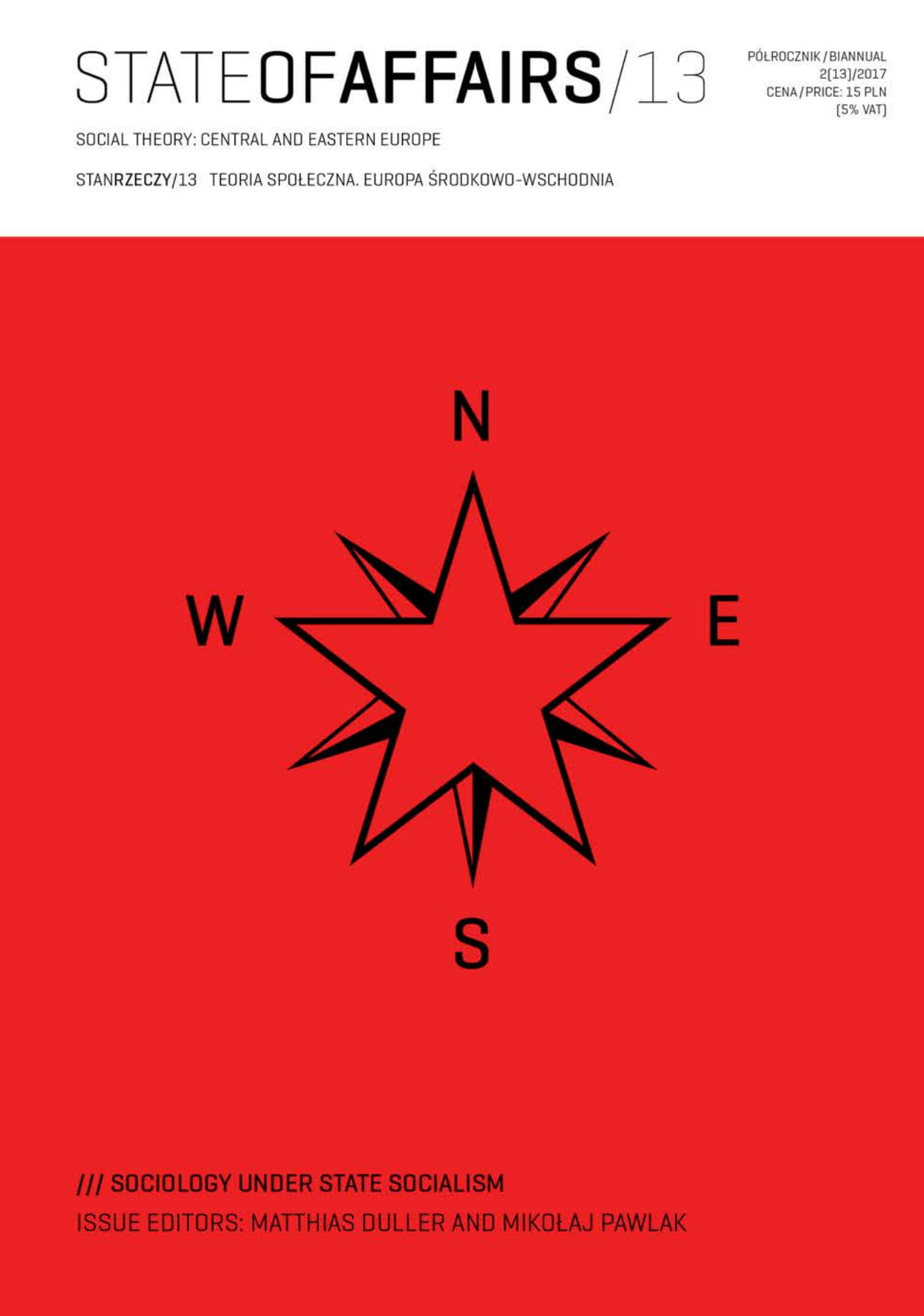From Scientific Social Management to Neoliberal Governmentality? Czechoslovak Sociology and Social Research on the Way from Authoritarianism to Liberal Democracy, 1969–1989
From Scientific Social Management to Neoliberal Governmentality? Czechoslovak Sociology and Social Research on the Way from Authoritarianism to Liberal Democracy, 1969–1989
Author(s): Michal KopečekSubject(s): History, Social Sciences, Sociology, History and theory of sociology, Social Theory, Sociology of Politics
Published by: Wydział Socjologii Uniwersytetu Warszawskiego
Keywords: Czechoslovakia;forecasting;Marxist sociology;scientific and technological revolution;social management
Summary/Abstract: This paper focuses on official Marxist sociology and social science research in Czechoslovakia as one of the central “disciplines of governance” in the 1970s and 1980s. With most of the first-class practitioners being purged after 1968, the study pays little attention to the intrinsic value of sociological production in the given period, but focuses instead on the modus operandi of “apologetic sociology”: the ways in which sociological knowledge was used to help manage “socialist society” under the late-communist regime, and how that knowledge was adapted to the changes brought about by perestroika (while anticipating the discipline’s own transformation during the early liberal democratic period after 1989). First, the paper deals with the reformulation, during the early 1970s, of Radovan Richta’s theory of scientific and technological revolution from the originally reform-communist, emancipatory, and technology-optimistic concept of the 1960s into a hegemonic legitimation paradigm allied with the closely related social management theory elaborated by František Kutta. Then the paper addresses the more practical side of the paradigm, as exemplified by Jaroslav Kohout’s economic sociology and his theory of labour collectives as central sites of state socialist socialisation and the disciplining of citizens. Finally,the paper considers semi-official research endeavours and expert “niches” during the 1980s, and how they drew legitimacy and state financial support from the claim that they were contributing to the “social-scientific steering of society” – while they stayed away from direct ideological engagement. It is these “niches” that formed the new sociological mainstream in the early liberal democratic period after 1989. That mainstream gave legitimacy not only to post-dissident social concepts such as “civil society” but also to the managerial and governance techniques of the emerging neoliberal capitalism. The paper exemplifies this branch of research by the mainly Bratislava-based group revolving around Fedor Gál and Pavol Frič and their development of a nonconformist method of “problem-oriented participative forecasting” during this period.
Journal: Stan Rzeczy
- Issue Year: 2017
- Issue No: 13
- Page Range: 171-196
- Page Count: 26
- Language: English

